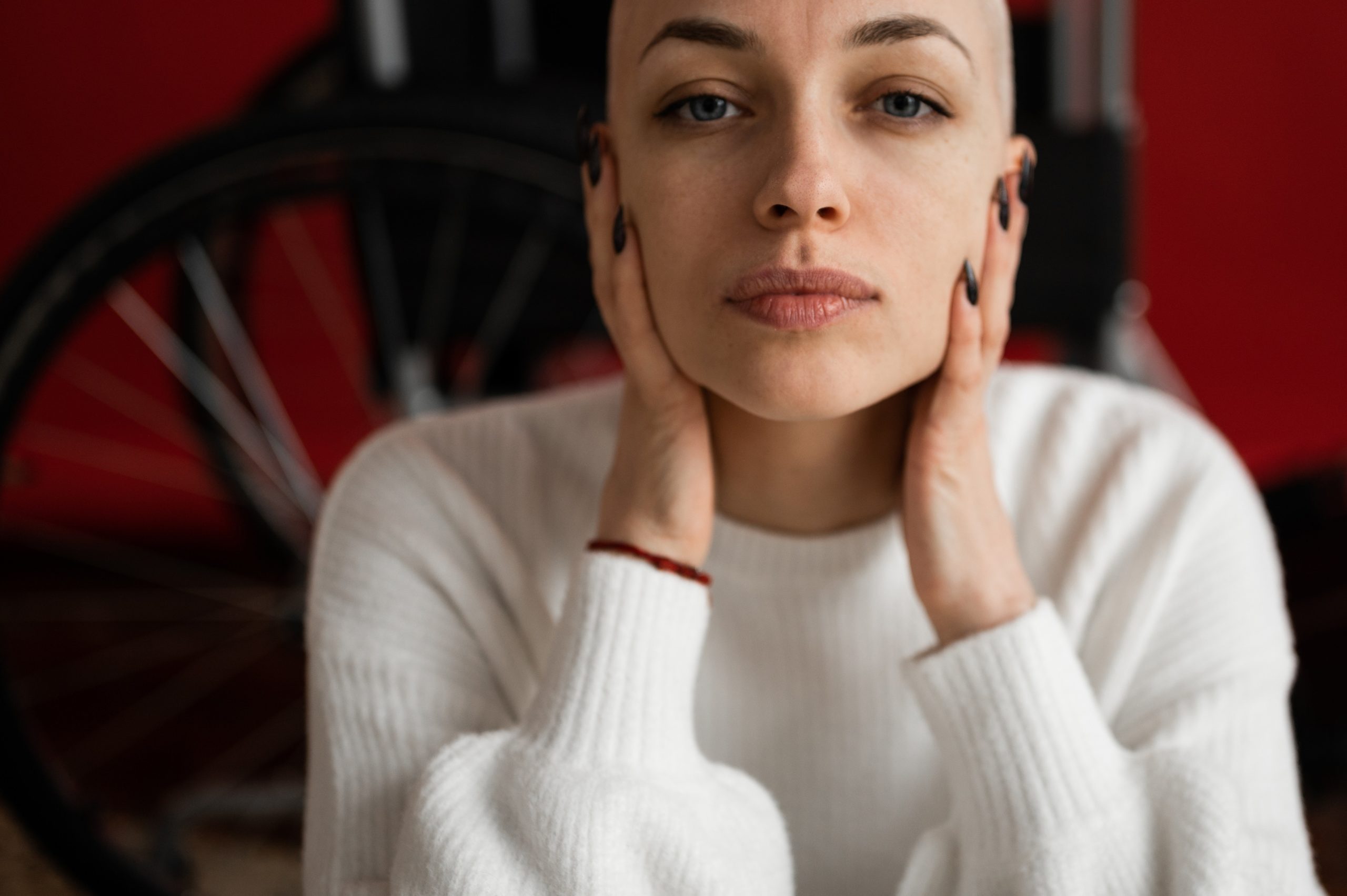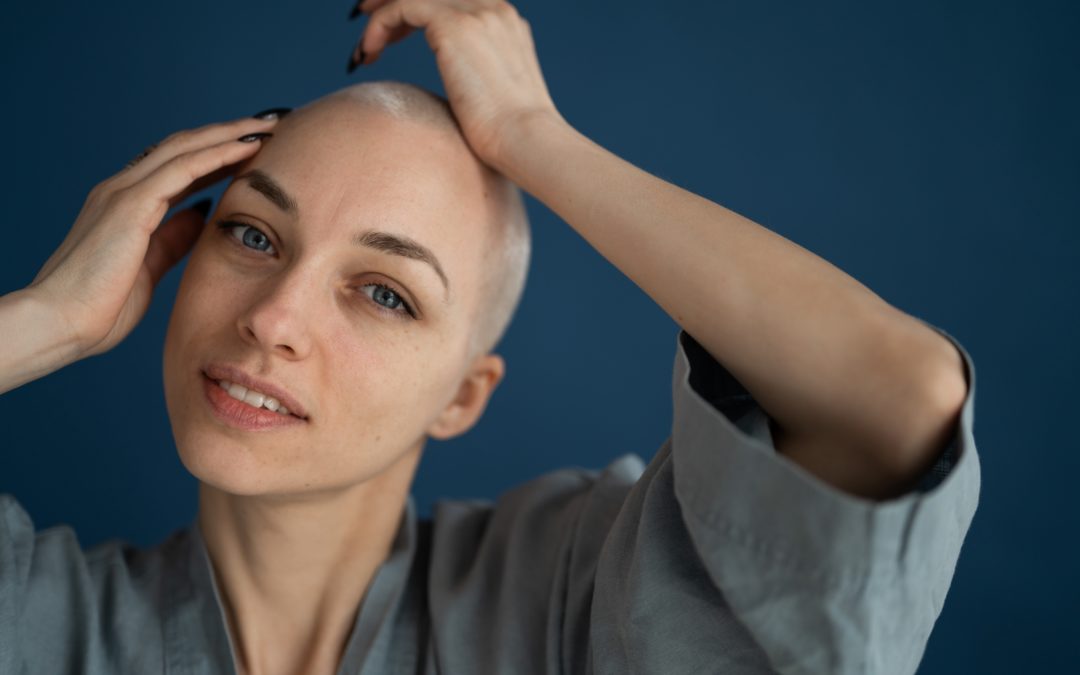
This year’s Oscars was one for the books, for all the wrong reasons. Years later, people won’t remember the nominations, nor the glittering red-carpet moments. For people around the world who watched the prestigious film awards, the image of award-winning actor Will Smith slapping comedian Chris Rock will be permanently stamped on everyone’s minds.
But after the shock of the slap came the inevitable questions: why was Chris Rock’s joke not funny, and what is the story behind the shaved head of Jada Pinkett-Smith, Will Smith’s wife?
Jada’s Battle with Alopecia
In 2018, Jada Pinkett-Smith publicly revealed her battle with alopecia, an autoimmune disorder that causes hair to fall out.
“It was terrifying when it first started. I was in the shower one day and had just handfuls of hair in my hands, and I was just like ‘Oh my God, am I going bald?”, Jada said on her Facebook Watch show, “Red Table Talk.”
The actress added, “It was one of those times in my life where I was literally shaking in fear.”
Since then, Jada has been boldly embracing her condition, speaking about it with confidence and candor that she has become a beacon of light and an inspiring advocate for women and men who have alopecia.
According to WebMD and Healthline, though alopecia is usually not a serious medical condition, it could cause a lot of anxiety, sadness, and stress. Losing one’s crowning glory could cause deep psychological strain, no matter the race, age, and social class.
Alopecia has no cure. For the people who have it, the only option is to manage the symptoms. There are varying degrees of hair loss, some are mild, while some are extreme. For others, the hair manages to grow back. However, there are cases where the hair loss recurs after a time.

What is alopecia?
Alopecia might be one of the most frustrating diseases out there. For one, as mentioned, it has no cure. For another, no one knows what causes it.
When you have an autoimmune disease like alopecia, your immune system attacks your hair follicles, mistaking it for a virus or a foreign invader. As a result, the hair falls off.
There are different types of this condition. Alopecia areata is most common in its main form, but there are other, more rare types, according to Healthline:
- Alopecia areata totalis means you’ve lost all the hair on your head.
- Alopecia areata universalis is the loss of hair over your entire body.
- Diffuse alopecia areata is a sudden thinning of your hair rather than lost patches.
- Ophiasis alopecia areata causes hair loss in a band shape around the sides and back of your head.
What causes alopecia?
As an autoimmune disease, alopecia is one mysterious illness. And even though doctors couldn’t pinpoint the exact cause of alopecia medically, some of them think it’s hereditary.
They also surmised that people likely to have alopecia are people who have:
- asthma;
- down syndrome;
- pernicious anemia;
- seasonal allergies;
- thyroid disease,
- and vitiligo.

Some believe that there are environmental factors that trigger the hair loss, the most popular of which is stress.
Stress, when excessive, like that associated with injury, illness, and surgery, can cause two types of hair loss. One is alopecia areata. Second is telogen effluvium, a more common and less severe type of hair loss. With this type, hair typically grows back within 6 to 9 months.
Hair loss can also occur when one’s undernourished, or undergoing an extreme kind of diet. According to an article on WebMD, nutritional deficiencies in iron or Vitamin D could cause alopecia.
Other triggers are hormonal imbalance, and thyroid issues. The thyroid is a neck gland that controls metabolism-related hormones. Both low and overactive thyroid could trigger hair loss. If the hair loss is accompanied by drastic weight changes, menstruation changes, and high or low energy, then it’s highly likely that it’s a thyroid problem.

Living with alopecia
With alopecia, doctors won’t beat around the bush. There are topical creams, injections to the scalp, and immunotherapy sessions. But there’s no guarantee the hair will return for good.
How do people with alopecia deal with this glaring fact? How do they confront the loss, and not let it define who they are, and the dreams that they have? Let’s get to know some of these people, and how they’re living with alopecia.
Abby Wren: “Different is dope”
Abby Wren is a makeup artist living in California, USA. In a Youtube video produced by Firefox, Abby shares how she lost her hair to alopecia in high school, and again, in adulthood.
Abby shares, “I was just entering freshman year of high school. And then, one day in the shower, I just started noticing handfuls of hair kind of just fall out in the shower. Within about two months, all my hair was gone.”
When she lost her hair again as an adult, she decided to shave it off completely. “Immediately after that, I felt more like me than ever before.”
Like Jada, Abby decided to embrace her condition. In 2020, during the pandemic, Abby had time on her hands. She started producing videos showcasing her wide range as a makeup artist. She used herself as a canvas, and drew intricate designs on her head, face, and body. She posted her videos online, and soon received messages from people with alopecia all over the world, thanking her for inspiring them.
Abby found her community, and her purpose. She says, “Through losing my hair through alopecia, I have really come to understand over the years that we’re not meant to blend in. that’s what I’m trying to do, show them that standing out and being unconventional is awesome. Different is dope.”
Laura Mathias: “Our individuality is a gift which should be celebrated.”
Laura Mathias, 29, is an internal communications officer for a university in the UK. She was also recently announced as an ambassador for Models of Diversity, a charity which encourages diverse representation in the modelling industry.
Laura was 13 when she started losing her hair. “Over the years, it has taken my eyelashes, eyebrows, all the hair on my body,” Laura shares in an interview with Harwich and Manningtree Standard.
She adds, “For many years, alopecia took my confidence too. I have let hair loss dominate my life.”
During the lockdown of 2020, things began to change for Laura. She stopped using wigs, and found time to reflect on her life.
Laura shares, “It was in lockdown that I discovered amazing people on Instagram sharing their experience of hair loss. It was like finding a whole community. Becoming part of this hair loss community was a game changer for me and my confidence.”
She realized that with or without a wig, she is beautiful. It was in embracing herself that she finally found acceptance and healing. Now, as an ambassador for a modeling agency, Laura is looking forward to representing women like herself in the media and fashion industry. She adds, “You can be bald and beautiful.”
Conclusion
Hollywood A-listers have been vocal about their disapproval over Will Smith’s lack of restraint and display of violence during this year’s Oscars. Critics have determined the incident as one of the darkest moments in Oscar history. But one thing’s for sure, something good came out of it too. If anything, it succeeded to spark conversations about alopecia, an illness that has often been considered shameful. With or without hair, Jada Pickett-Smith is gorgeous, and undoubtedly a talented actress. And so does other people with alopecia. It takes real strength to live with alopecia, embrace it fully, and hold your head up high.
Tags
References:
https://www.webmd.com/connect-to-care/hair-loss/causes-of-alopecia
https://edition.cnn.com/2022/03/29/health/what-is-alopecia-areata-wellness/index.html
https://www.bbc.com/news/newsbeat-60940277
https://www.webmd.com/skin-problems-and-treatments/guide/alopecia-areata
https://www.healthline.com/health/alopecia-areata
https://www.rosettelavedette.com/en/blog/relight-alopecia-interview/



0 Comments